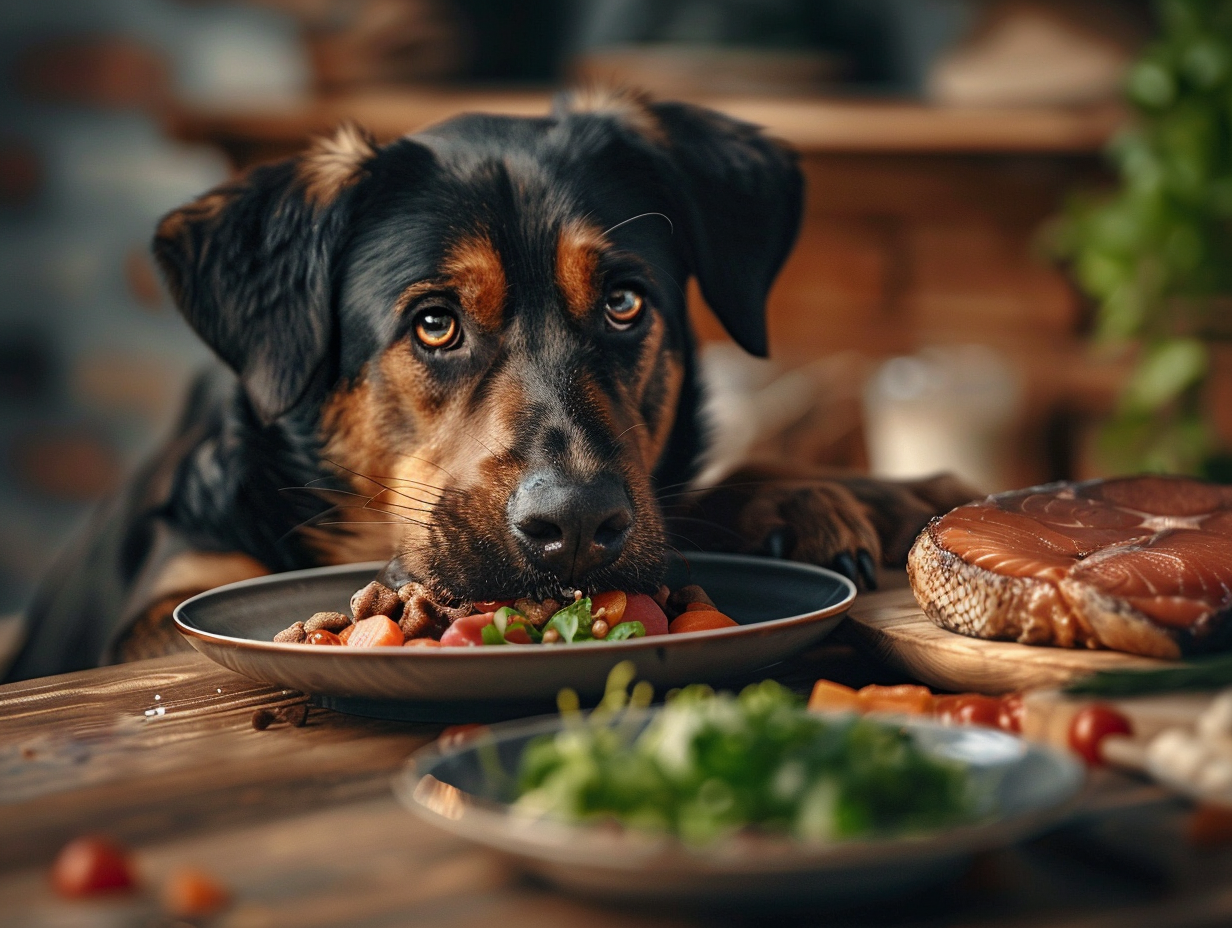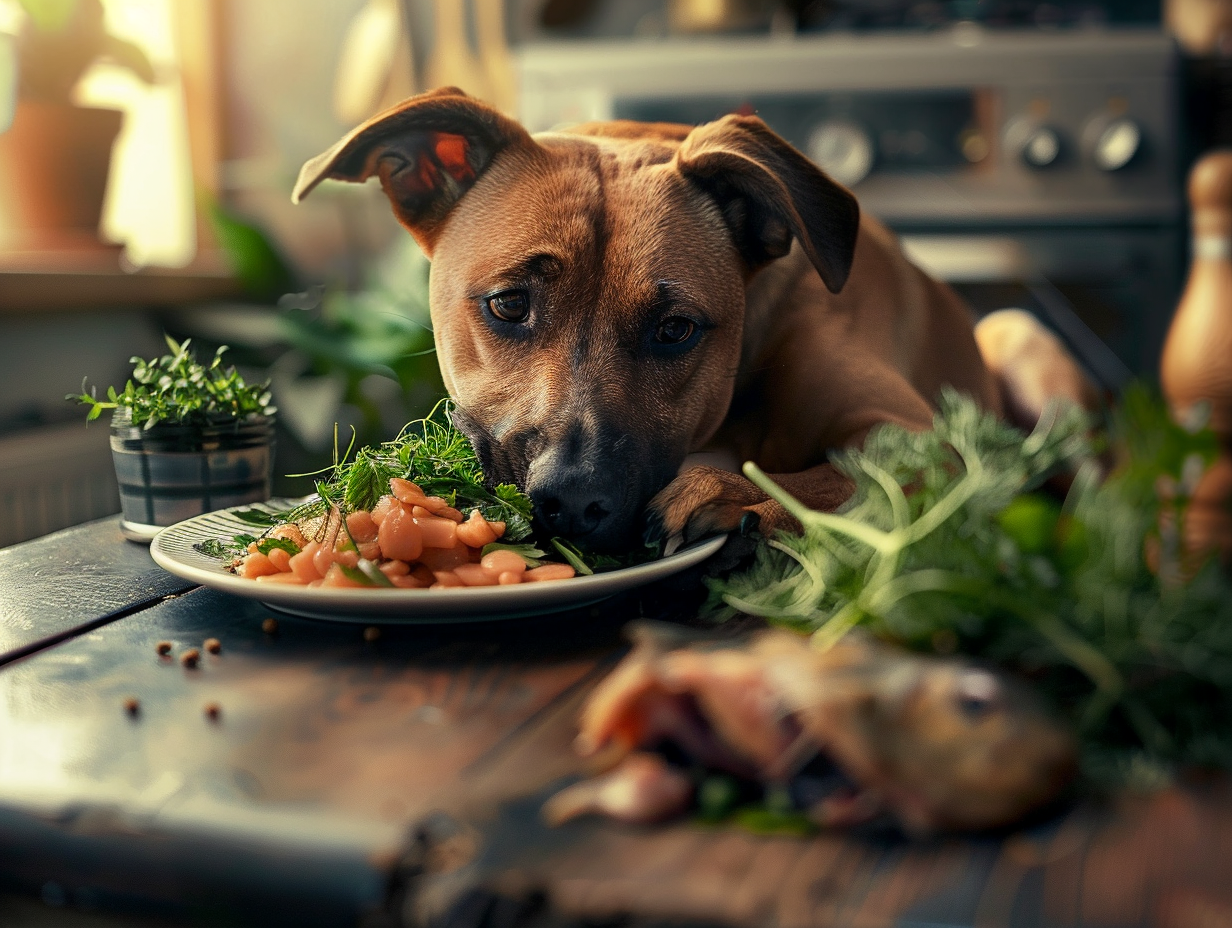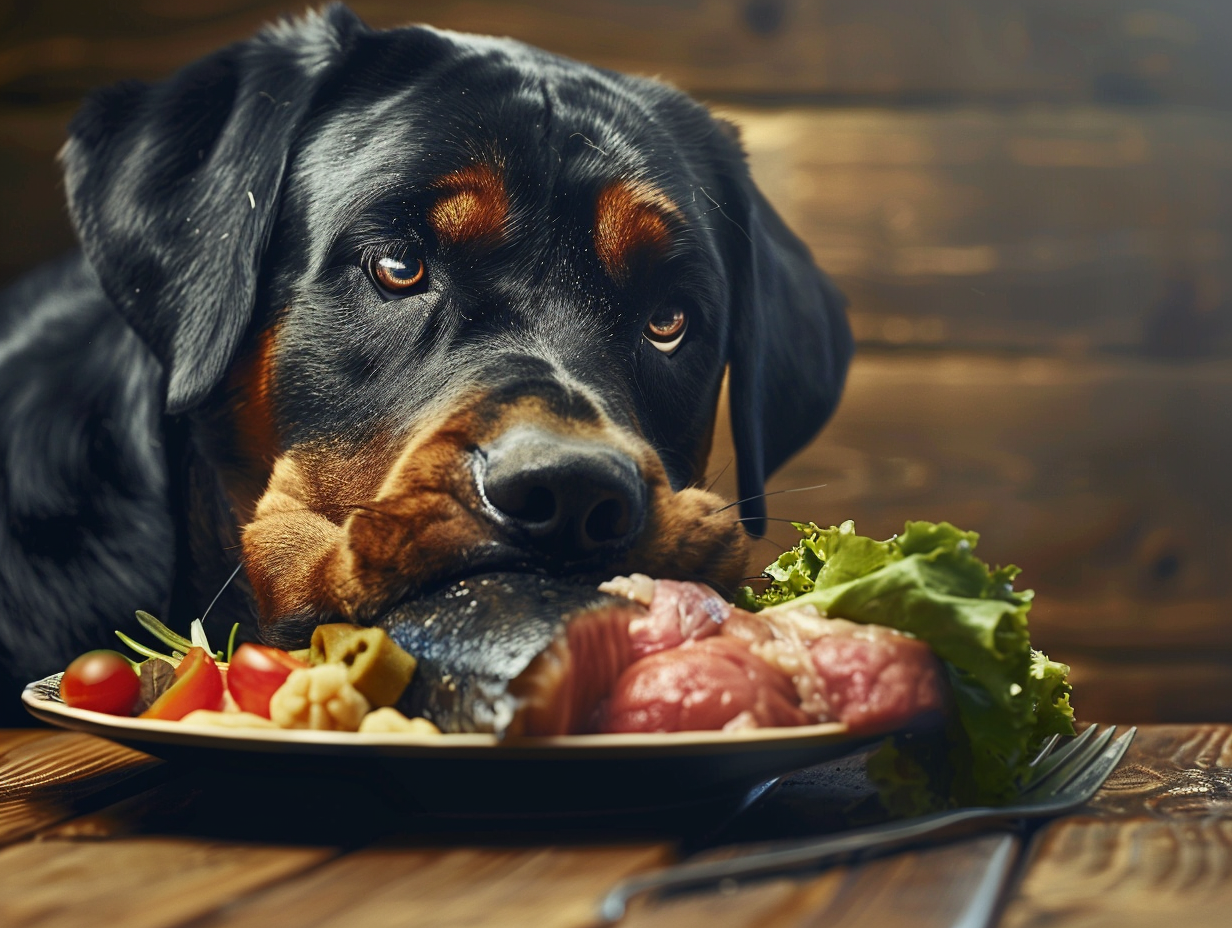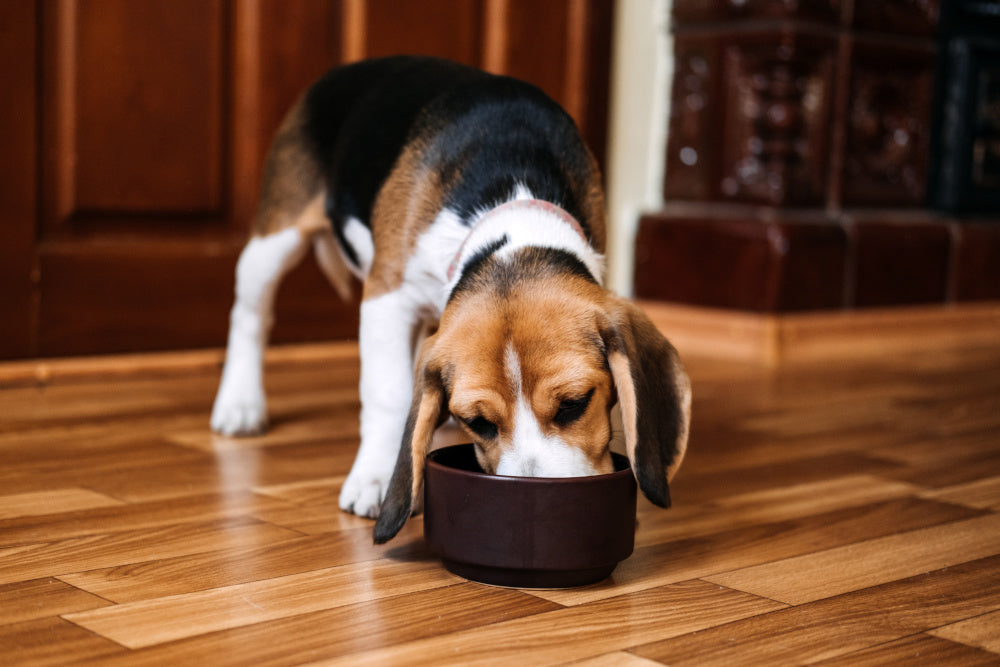Iron is an essential nutrient for dogs. It plays a vital role in various bodily functions, from transporting oxygen in the blood to supporting the immune system. That’s why your dog’s diet should have a healthy amount of iron-rich foods.
Luckily, many delicious food options are safe to incorporate into your dog's diet. Below, we have listed seven foods that are a rich source of iron:

1. Organ Meat
Organ meat, especially the liver and kidneys, contains a lot of iron. These animal tissues have significant amounts of iron which is easily absorbed by the dog’s body. Additionally, these organs are an excellent source of other nutrients, including vitamins A, B, copper, and zinc.
You can easily add organ meat to your dog’s diet by serving it raw or preferably cooked (to eliminate potentially harmful bacteria). Just chop or dice the meat into small bite-sized pieces and then mix those in with their regular food to elevate the nutritional content of their meals.
2. Fish
Many varieties of fish, including tuna, sardines, and salmon, are also good sources of iron. They also offer other essential nutrients such as omega-3 fatty acids, high-quality protein, and various vitamins and minerals.
Including a fish in your dog's diet can help provide them with a well-rounded nutritional profile, which will help improve their skin and coat health, cognitive function, immune response, and much more.
3. Lean Meat
Lean cuts of beef, chicken, and turkey are good sources of iron. These meats provide iron, high-quality protein, amino acids, vitamins, and minerals. Due to their savory taste, texture, and aroma, lean meat will also appeal to your dog's instincts. However, offering your dog cooked lean meat is best to avoid the risk of bacterial contamination.
4. Leafy Green Vegetables
Green leafy vegetables, such as kale and spinach, are excellent plant-based sources of iron. Although they contain non-heme iron, they’re also packed with vitamin C, which can significantly boost iron absorption in your dog’s body.
It’s also better to cook these vegetables for better digestion and nutrient absorption. If your dog is a picky eater, you can make a broth or a smoothie using these ingredients.
5. Legumes
Legumes, such as lentils, chickpeas, and beans, are also good plant-based sources of iron. They can be a great addition to your dog’s diet, providing iron and high-quality protein, fiber, and essential nutrients.
Soak and cook legumes before feeding them to your dog, or buy canned ones with dog-friendly ingredients.
6. Egg Yolk
Even though egg yolks contain a relatively modest amount of iron compared to other animal-based sources, they’re still an excellent option to add to your dog’s diet. Egg yolks are a well-rounded source of protein, iron, and many other vitamins and minerals.
You need to be careful about how you feed eggs to your dog. Many veterinarians advise against serving raw eggs to dogs as they might contain bacteria such as salmonella and e. Coli. Also, raw egg whites have an enzyme called avidin, which is harmful to dogs when eaten in large amounts.
The best option is to feed your dog a soft-boiled or fried egg (without seasoning) as an occasional treat.
7. Pumpkin Seeds
These tiny but mighty seeds are a rich source of iron and packed with other essential nutrients, including zinc, magnesium, and healthy fats. However, it is advised to avoid feeding your dog pumpkin seeds directly because they could pose a choking hazard. Instead, consider grounding a few pumpkin seeds and sprinkling the powder over your dog's regular meals.

How Much Iron Does a Dog Need?
An adult dog needs 0.5 milligrams of iron per kilogram of body weight every day. However, this requirement can change depending on a dog's health condition, age, weight, and breed. That’s why it's crucial to consult with a veterinarian about your dog’s requirements and ensure it receives the right amount of iron and other essential nutrients. Most complete and balanced dog food will contain some iron, although it may not be listed on the packaging. Brands will usually share the amount of iron within certain recipes if asked. At Nextrition, we strive for full transparency when it comes to what's in your pups meals. Whether it's our
cold-pressed lamb recipe,
cold-pressed salmon dog food recipe, or our
cold-pressed chicken dog food recipe you can trust that you're getting the highest quality ingredients.
Avoid feeding your dog too much iron-rich food because this can lead to potential health issues, including iron toxicity.

Summing Up: What Foods Are High in Iron for Dogs?
Pet owners should understand their dogs' nutritional requirements and provide healthy, well-balanced meals. If you feel your dog isn’t getting enough iron from their regular diet you can supplement it with other food such as organ meat, lean meat, fish, egg yolk, legumes, green vegetables, and pumpkin seeds.
However, we recommend you consult a veterinarian if you feel like your dog has an iron deficiency. This will help you understand your dog’s unique needs and customize a plan that aligns with your dog's specific health requirements.
FAQs
Let’s answer some frequently asked questions about dog’s nutrition and diet:
1. What foods are high in iron for dogs?
Various foods contain high amounts of iron that are safe to eat if prepared properly. For example, lean cuts of beef, chicken, and turkey, as well as organ meat, are excellent sources of heme iron. Additionally, egg yolks and fish such as tuna, sardines, and salmon can increase your dog's iron intake.
If you prefer a plant-based source of iron, leafy greens such as spinach and kale and legumes such as lentils, chickpeas, beans, and pumpkin seeds are some great options.
2. Does chicken have iron for dogs?
Yes, chicken is a good source of heme iron for dogs. This means that it contains a type of iron that is highly absorbable by your dog’s body. It also delivers high-quality protein and other nutrients that can contribute to your dog’s overall health.
You can give your dog either raw or cooked chicken as part of its balanced diet. However, uncooked chicken can pose a bacterial contamination risk, so you must be careful about handling and hygiene. Cooking the chicken provides a safer option for your dog.
3. Do eggs have iron for dogs?
Yes, egg yolk does contain a relatively modest amount of iron. However, it’s a well-rounded source of protein, iron, and many other vitamins and minerals.
However, you should be careful about how you feed eggs to your dog. It’s best to avoid serving raw eggs to dogs as they might contain bacteria such as salmonella and e. Coli. Also, raw egg whites have an enzyme called avidin, which is harmful to dogs. The best option is to feed your dog a soft-boiled or fried egg (without seasoning) as an occasional treat.
4. How to increase iron in your dog's diet?
You can incorporate iron-rich foods such as lean meats, organ meats, fish, eggs, legumes, leafy vegetables, and pumpkin seeds into your dog's diet. However, if you feel your dog isn’t getting enough iron from its regular diet, it's crucial to consult with your veterinarian. They can help you understand your dog’s nutritional needs and ensure it receives enough iron and other essential nutrients.





